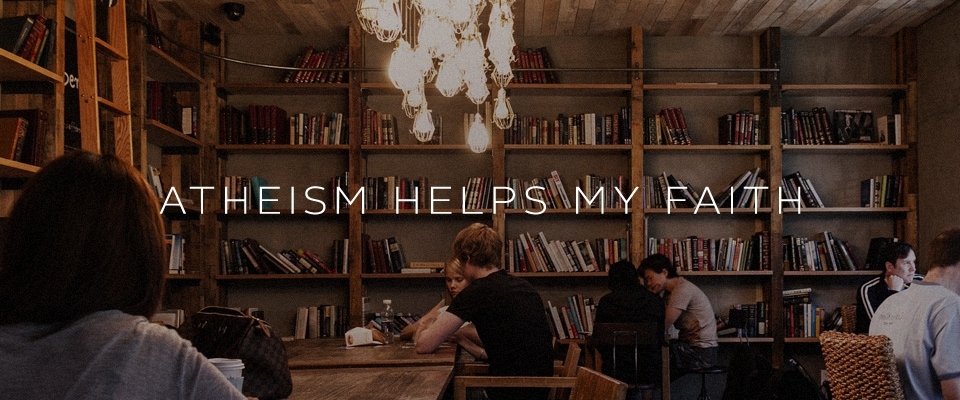When was the last time you had some time alone? I’m not just talking about withdrawing from people to do something you enjoy — fishing, or hiking, polishing off a bag of Doritos, or hitting autopilot and watching endless episodes of your favourite show on Netflix. These things can be good (maybe!). But I’m wondering when was the last time you withdrew from everything to be with God? Intentionally creating space and time to be in solitude. Maybe it’s been awhile, maybe you’ve never done it at all. And while I can’t tell you what to do when you withdraw to be with God, I can give you a sketch of what will take place.
The late Dallas Willard wrote a brilliant book called Spirit of the Disciplines. It’s the place to start. In it, Willard says, “Solitude is choosing to be alone … in solitude, we confront our own soul with its obscure forces and conflicts that escape our attention when we are interacting with others.” In a way, solitude is like getting undressed before God, and asking him what he sees. Why on earth would we do that?! Especially when there’s so many things that just need to get done. Why would we stop? Let alone stop to be examined in our nakedness!
Consider Luke’s gospel. Jesus faces great crowds. Crowds who were plagued with many illnesses. Crowds who relentlessly demanded his time. Yet Luke writes that amidst these demands, Jesus “would withdraw to desolate places and pray” (Luke 5:16).
How could Jesus withdraw? Only he could bring the healing and wholeness that these people desperately needed! But he did withdraw. He withdrew to pray, to be with his Father who delights in him. Jesus did this because he knows what it means to be truly human. He knows what it is to balance work with rest. He knows the human soul can only be satisfied in God alone. And Jesus modelled this practice not just for his own sake but also for us.
But why?
Let’s go to Mark’s gospel.
The disciples go on their first and very successful mission trip. Mark writes, “The apostles returned to Jesus and told him all that they had done and taught. And he said to them ‘Come away by yourselves to a desolate place and rest awhile.’ For they were coming and going, and they had no leisure even to eat” (Mark 6:30-31).
Isn’t this strange?
The disciples come back rejoicing, sharing successes and TPS reports. And now they face a dangerous opportunity. They can get so caught up in doing, in engaging their work, that they might fail to nourish their physical needs. No time to even eat. But just as they need food, Jesus is teaching them that they need rest.
They needed solitude.
We do too.
In solitude with God, we’re reminded that even while we’re restless and messy, God doesn’t shame us for our sins and failures. Rather he meets us in our restlessness and mess and offers us his presence.
Jesus calls us to find rest in solitude so that we can find our sense of identity not in what we do but in belonging to God. We need times of solitude because it helps clarify our identity by reminding us of who is with us, and whose we are. The problem, however, is that most of us are simply too busy to prioritize this time. And even if we carve out this time, what happens then?
Our minds race. They can’t stay still.
Or, we just fall asleep.
But perhaps God wants us to be still with our racing minds.
Archbishop William Temple once said, “Your religion is what you do with your solitude.” When you’re in a place where you don’t have anything to think about, where does your mind go? What does your mind habitually go to? What gives you the most comfort to fantasize about? Presto! That’s your God.
When we carve out time to intentionally practice the discipline of solitude, we confront ourselves, we confront the many things that vie for our attention, and most importantly we confront anything that takes the rightful affections of our hearts that are supposed to belong only to God.
Maybe when you’re alone, you start to think about a person. Somebody that you’re in love with, or would like to be in love with, or you’d like that person to be in love with you. Perhaps you think about your career; what you’re going to do when you’re done with this job, how you’re hoping to get there. Or perhaps in the moment you’re still, your mind starts racing, and you become anxious. Why? Because you see your time as something that needs to be constantly productive, engaged, and useful. You begin thinking of all that needs to be done.
When I engage in solitude I immediately confront my exhaustion. I confront how I work tirelessly so that I feel like I’m valuable, productive, worthwhile and important.
We confront ourselves in solitude.
We discover that we are deeply restless and we attempt to replace God with things that cannot deliver. The question, though, is what do we do with this realization?
It would be a incomprehensible mistake to ignore it.
Solitude forces us to confront the reality that we are not fully in God’s rest. It’s such a wonderful irony.
And while solitude challenges us to confront our restlessness, it is also an opportunity to enter God’s rest. We rest from tirelessly trying to find wholeness, purpose, or our sense of identity on our own. In fact, we rest from doing anything at all. Because in solitude with God, we’re reminded that even while we’re restless and messy, God doesn’t shame us for our sins and failures. Rather he meets us in our restlessness and mess and offers us his presence.
In solitude we’re invited to evaluate our lives in light of what Jesus has done for us. Yes, in it we will struggle as we’re challenged to confront our false-comforts and idols, our restlessness and struggles. But God uses solitude to point us to our need for help, our need for a Saviour. This is the painfully beautiful part of solitude: it invites us to trust that Jesus has brought us everything we need, at the cost of his life, so that we can rest from all our ways of working and seeking to create it ourselves. After all, we don’t receive the amazing benefits of the gospel by doing anything, but simply by resting in what has been done for us.
So go ahead, take some time alone with Jesus.




